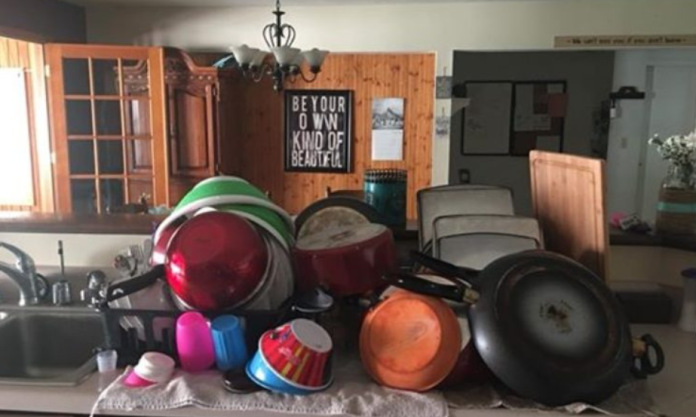If you are at home right now, take a moment to look around. What do you see? Do you see a tidy house where everything (well, almost everything!) is in its place, or total chaos and disorganization? If it’s the latter, don’t feel bad, it happens to the best of us from time to time, but if it happens very often in your life, there may be something more serious going on.
A series of studies used to write the book Life at Home in the 21st Century: 32 Families Open Their Doors, shows that people, especially women, who live in messy homes experience high levels of stress hormones, the same type that contributes to depression.
This experiment was described in psychiatrist Audrey Sherman’s “Disrupted Dysfunction” column on PsychCentral. There, Dr. Sherman reveals that disorganization and the accompanying chaos are “the biggest problems reported by depressed people.” “Emotional baggage tends to build up and express itself in the form of external turmoil,” the psychiatrist writes.
It’s true that living, working and even driving in cluttered spaces is not good for mental health, but sometimes the problems are so intertwined that it’s hard to know which came first – the depression and the clutter or vice versa.

Recently, we shared this photo as part of an article detailing an Indiana mother’s struggle with depression. In a now viral Facebook post, Brittany Ernsperger added the photo to accompany a story describing the experience that led to this huge sink full of clean dishes.
We learn that Brittany Ernsperger not only had a busy dinner party to clean, but the sink was filled with dishes that had been building up for two weeks. The mother of four goes on to explain that after several tearful attempts a few days prior, she finally came out of the extreme depressive haze that kept her from cleaning.
After sharing her story and photo, the message went viral, and she even got a spot on the Today show, where she used her platform to explain that the signs of mental illness aren’t always obvious – they can manifest in more subtle ways, like a messy house or constant tardiness.
How to improve your headspace by decluttering
Now that you know that there’s a firm link between household mess and depression, let’s take a look at some ways we can solve the problem. Here are our favorite Feng Shui-inspired tips to check off your list as you clean:
- Donate or get rid of unnecessary items (that includes things that have not been used in the past 6 months)
- Only keep objects around you that elicit positive memories
- Re-organize your home so that it is a welcome place for guests
- Only keep the things that you currently need in your immediate space–all else belongs in storage.
See, that’s not so hard, isn’t it?

If you suffer from depression and/or you feel overwhelmed by a cluttered home, be sure to speak with your doctor. They might have some more advice on treatment options that can be added to your mental health plan.
What are your thoughts on the connection between clutter and depression?
Does this ring true for you?










